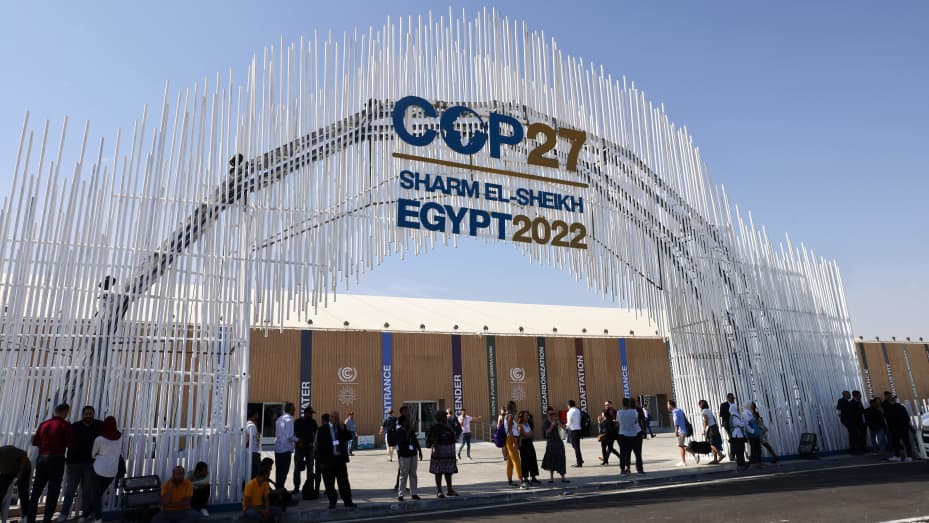From November 6 to November 18, officials from thousands of governments, businesses, nongovernmental organizations and civil society groups are in Sharm el-Sheikh, Egypt for this year’s United Nations climate summit, known as “COP27.” COP stands for “Conference of the Parties” and the annual conference is in its 27th year. The conference is intended to address humanity’s greenhouse gas emissions and ways to stave off the worsening effects of the climate crisis.
Here are some early themes worth noting.
Greenwashing remains a major concern
Companies and local governments keep making bold promises to slash emissions and get to “net zero” by a certain date. However, United Nations Secretary General Antonio Guterres clearly stated the need for environmental integrity, credibility and accountability and discouraged making false promises.
“Using bogus ‘net zero’ pledges to cover up massive fossil fuel expansion is reprehensible. It is rank deception,” said Guterres. “This toxic cover-up could push our world over the climate cliff. The sham must end.”
To prevent greenwashing claims, organizations and businesses must ensure their products and services address emissions, and report honestly and transparently about how they are reducing emissions using clear definitions before marketing themselves as “green,” “environmentally friendly” or “sustainable.”
Developing countries need money
U.S. Special Presidential Envoy for Climate John Kerry drew attention for his proposed Energy Transition Accelerator, which would sell carbon credits to companies interested in offsetting emissions to gather funds for developing countries for their renewable energy projects. The Bezos Earth fund, the Rockefeller Foundation, and big companies such as PepsiCo, Bank of America and Microsoft have already expressed interest in the plan.
While the proposal drew criticism for relying on a carbon market to generate revenue, rather than directly investing in the countries themselves in the form of grants, it highlighted the need for direct investment in low-income countries that are unable to cope with the effects of climate change as well as wealthier countries. For example, countries with more poverty, insufficient infrastructure and more natural weather variability – such as Madagascar — are experiencing worsening effects of climate change more acutely. In Madagascar, rising temperatures are contributing to drought and devastated crops that highlight existing vulnerabilities.
As we move forward, expect sustainability and environmental communication narratives to revolve around how the more affluent Global North can use their resources to help developing countries in the Global South curb their carbon footprint and prepare for a warming world.
Elevating Indigenous Voices & Local Communities
Studies show that Indigenous lands hold more than a third of the planet’s large swaths of natural forests and an estimated 80% of the world’s biodiversity and that deforestation rates in Indigenous territories are lower than in similar non-Indigenous lands. Despite their importance, Indigenous Peoples and Local Communities (IPLCs) are regularly left out of negotiation talks at COP27. In response, IPLCs have rallied and continue to rally for their voice to be heard and to be included in these discussions.
One of Teak Media’s clients, Health In Harmony believes that IPLCs, who are the ones closest to the environmental challenge, are the best equipped to determine the solutions that will resolve the problem. Health In Harmony works to reverse global heating by partnering with rainforest communities and implementing their solutions using a proprietary process known as Radical Listening™.
Recognizing that IPLCs don’t get enough credit for mitigating climate, Health In Harmony showed their six-part film series called “Planet Protectors” at COP27 to shed light on the work IPLCs do daily to protect the planet for everyone. They also demonstrated their Rainforest Exchange, which is their technology platform https://rainforestexchange.org/ that allows people to directly invest in IPLC solutions.
As COP27 continues for the rest of the week, the hope is that the lessons of reporting environmental claims honestly, raising funds for developing countries, and elevating IPLCs will persist along after the summit concludes.
Header image: Joseph Eid | Afp | Getty Images


